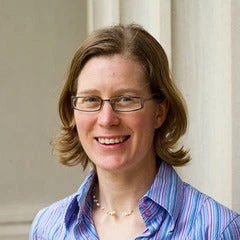The challenge of moving from conflict and fragility to resilience and growth is immense. More than half of the countries counted as low income have experienced conflict in the last decade. Twenty per cent of countries emerging from civil conflict return to violence in one year and 40% in five years.
While the use and production of reliable evidence has become more common in much of the international development debate and in many developing countries, these inroads are less prevalent in fragile and conflict-affected situations (FCS). Programming and policy making in countries affected by conflict and prone to conflict is often void of rigorous evidence or reliable data. It is easy to argue, and many do, that it is impossible to conduct rigorous evaluations of programs in conflict-affected states. However, in spite of the very real challenges in these environments, such evaluations have been conducted and have contributed valuable evidence for future programming, for example in Afghanistan, the DRC, Colombia, northern Nigeria and Liberia.
My unit Center for Conflict Security and Development, (CCSD) is teaming up with the Department of Impact Evaluation (DIME), as well as the International Initiative for Impact Evaluation (3ie), and Innovations for Poverty Action (IPA), in a series of activities to enhance the evidence base on development approaches to peace- and state-building challenges. A first goal is to scope out where our evidence base is thinnest: what are the programs and interventions that remain least tested, but have theories of change suggesting great potential? We are hoping to take stock of what we and other donor institutions have been doing in this area of development, and map this into what we have learnt and what we most need to learn more about. USIP, USAID, IRC as well as leading academics in this field and IEG, are kindly helping in this endeavor, and we hope to be able to share some initial findings at our fragility forum later this year.
We are also hosting a workshop in Lisbon at the end of the Month with DIME, where we will be bringing together World Bank project teams from Angola, Brazil, Burundi, Colombia, DRC, El Salvador, Guatemala, Honduras, Jamaica, Liberia, Madagascar, Mexico, Papua New Guinea, Togo with academics, who all have experience carrying out impact evaluations. As well as providing an opportunity for project teams to meet with research experts and exchange knowledge on what we learning from our ongoing field work, we will be sharing information on how to develop impact evaluations and carry them out in challenging environments. An aspiration of the workshop is to launch a series of impact evaluations in several key areas: jobs for resilience, public sector reform, gender-based violence and urban crime and violence, by bringing project teams in these areas together with researchers.
This initiative is in its very early stages and we are keen to obtain input from others. Have you recently been working on projects or programs in fragile situations? What was your project? Do you have results that you can share? Where do you think we need to learn more?


Join the Conversation